On Election Day in Milford, NH (pop. 9,212), a cadre of 150 townspeople shows up at the high school to make democracy work.
The first shift of 50 starts to arrive at 5:30 a.m., coffee in hand, to be sworn in before polls open at 6. Volunteers work alongside the town clerk, moderator and checklist supervisors and do everything from managing the queue and reminding people to have their IDs ready to helping new voters register to handing out ballots and coordinating lunch for poll workers.
The sheer numbers involved — and the checks and balances built in — do more than make the process run smoothly. They also help people to trust the process.
“Especially in this climate, being involved helps people see how elections work,” said Milford Town Clerk Joan Dargie. “To people who question the process, I say ‘Come and volunteer and you’ll see what it’s like.’”
In many places in New Hampshire, democracy is sustained by a healthy dose of neighborliness and dedication. But, as in the rest of the country, New Hampshire is seeing troubling trends that undermine trust in the process, exacerbate polarization and threaten to contribute to an overall decline in civic health.
“Especially in this climate, being involved helps people see how elections work. To people who question the process, I say ‘Come and volunteer and you’ll see what it’s like.’”–Joan Dargie, Milford Town ClerkTweet This
The Charitable Foundation has long invested in nonprofits that seek to strengthen civic health. Its new strategic plan, Together We Thrive, calls for New Hampshire’s statewide community foundation to work to address polarization, misinformation and other forces that threaten democracy, as well as to invest in leadership and representation by people of color in our communities.
“For everything else to work, the civic health of our communities needs to be robust,” said Deborah Schachter, who oversees civic health grantmaking at the Foundation.
Nonprofits nurture civic health
Much of what nonprofits do is about creating a sense of belonging that drives community connection and participation — even those nonprofits whose missions are not explicitly about voting rights or civic health. From mentoring programs that show young people they are valued to health care advocacy organizations that encourage people to use their voice, to organizations that promote the understanding of our shared history to show that we all belong.
America Votes is part of a coalition of groups providing nonpartisan support to local election officials. A Foundation grant to the nonprofit NH Democracy Fund helped that coalition organize nonpartisan recruitment for poll workers and survey every town and city website in New Hampshire to create a “best practices” template for sharing information about elections, polling places and voter registration.
“Our democracy runs on election officials who are not well paid doing thankless work and doing it because they care about their community and about democracy,” said Kate Corriveau, New Hampshire state director for America Votes.
“Local election officials have really borne the burden of disinformation about voter fraud. We want to make sure they are supported.”
The Foundation has long supported an array of organizations and efforts that advance civic health and civics education in the state — from the production of New Hampshire’s Civic Health Index to funding for NH Civics, Citizens Count, and the award-winning Civics 101 podcast on NHPR.
Additional recent grants have supported research on youth voting in New Hampshire, grassroots efforts to encourage voter registration, nonprofit news that provides information to help people make informed decisions, outreach and leadership development that aims to engage more leaders of color in our communities — and more.
Young people vote
A Foundation-commissioned report by the national, nonpartisan Civics Center aimed to help understand the landscape of youth voting in New Hampshire. The report found that when young people are registered, they do vote — but that just 13.2 percent of 18-year-olds in the state are registered.
Open Democracy is working with local high schools to get more young people to register to vote. During “walking field trips” 18-year-olds walk from school to their city or town hall with the required paperwork and register. Its “Congratulations, Graduate!” program provides registration information to graduating seniors.
“This is one hundred percent nonpartisan, and we want them to understand that voting is part of your civic life and part of good citizenship,” said Olivia Zink, executive director of Open Democracy.
In Portsmouth, 18-year-old Sam Borne heard about Open Democracy’s efforts in schools and ran with the idea. He led a voter registration drive for his peers, inviting the Portsmouth city clerk to graduation practice at Portsmouth High School last spring, and getting as many as 50 18-year olds onto the voting rolls.
“A lot of people feel very passionate about issues, but don’t necessarily correlate those with voting,” Borne said. He tries to help his age-mates see the correlation. He also wishes New Hampshire — like the most other states — allowed online registration to make the process more accessible. “It needs to be easier,” he said. “But you also need to find a way to make people care more.”
Grant are supporting multiple grassroots efforts focused on understanding barriers to voting and helping people overcome them — including among New Americans, people of color and people with impaired vision.
In Nashua, Martha Alvarado is part of a new outreach project of the New Hampshire Alliance of Immigrants and Refugees to encourage citizens who are Latino (New Hampshire’s largest ethnic minority population) to register and vote.
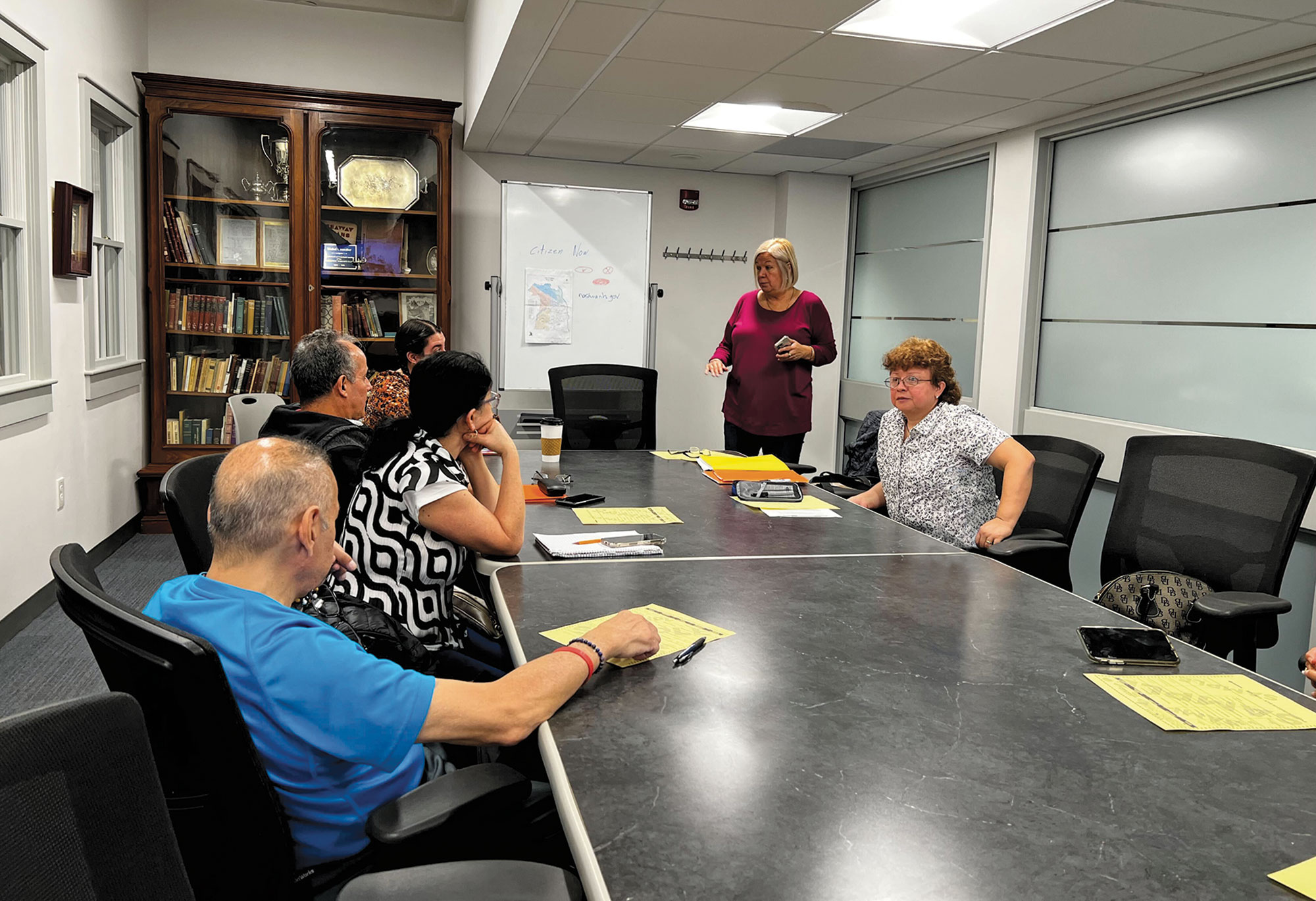
Eva Castillo and Martha Alvarado (to right of table) help fellow citizens understand the election process as part of a new outreach project of the New Hampshire Alliance of Immigrants and Refugees. (Photo by Cheryl Senter.)
When Alvarado voted for the first time after becoming a citizen, she found the process to be confusing and the language barrier challenging. Not knowing what the down-ballot offices even did, she simply voted for president and left the rest of the ballot blank. In her new person-to-person outreach role, she makes the rounds from grocery stores to bakeries, barbershops and bookstores to encourage her fellow New American citizens to vote. She is armed with explanations in Spanish and English about the process, about required documentation and the responsibilities of the different offices on the ballot.
The Alliance has long advocated for New Hampshire to make voting materials available in Spanish, which they are this year for the first time. (Materials are also available for the first time in French and Mandarin.)Alvarado encounters people who have been American citizens for years, but never registered to vote. Some, she says, came from places where they felt that participating was fruitless — or dangerous. She encourages them to register and exercise their rights as U.S. citizens.
“Now they are participating,” she said.
“Your vote is your power, and if we do not claim our power, no one is going to hand it to us,” said Eva Castillo, executive director of the Alliance. “In order for us to be taken seriously as a so-called ‘minority community’ we have to vote. If we do not vote, then we put our destiny in the hands of people who do not know anything about us.”
Strengthening local news
A partnership between the Granite State News Collaborative and NHPR has helped the state’s Latino community in this regard. “¿Qué Hay de Nuevo, New Hampshire?” provides daily Spanish-language news reports — another first for the state.
In New Hampshire, as in the rest of the country, local news overall has taken a seismic hit, with newsrooms shedding reporters’ positions and the ability to cover community issues severely diminished. The Foundation has supported the News Collaborative — a nonprofit coalition of 20 outlets that share content and work together on projects — since its inception. Grants have also supported a Report for America reporter covering education at the Concord Monitor, solutions journalism projects at the Union Leader and newsgathering at NHPR and NHPBS.
“If New Hampshire is going to be a community where everyone can thrive, then everyone needs to feel that they belong and that their voice can be heard,” Schachter said. “They need access to accurate information to make decisions, the ability to think critically about what they read and hear, and confidence in our democratic process. The future of our democracy and our communities depends on all of those things.”

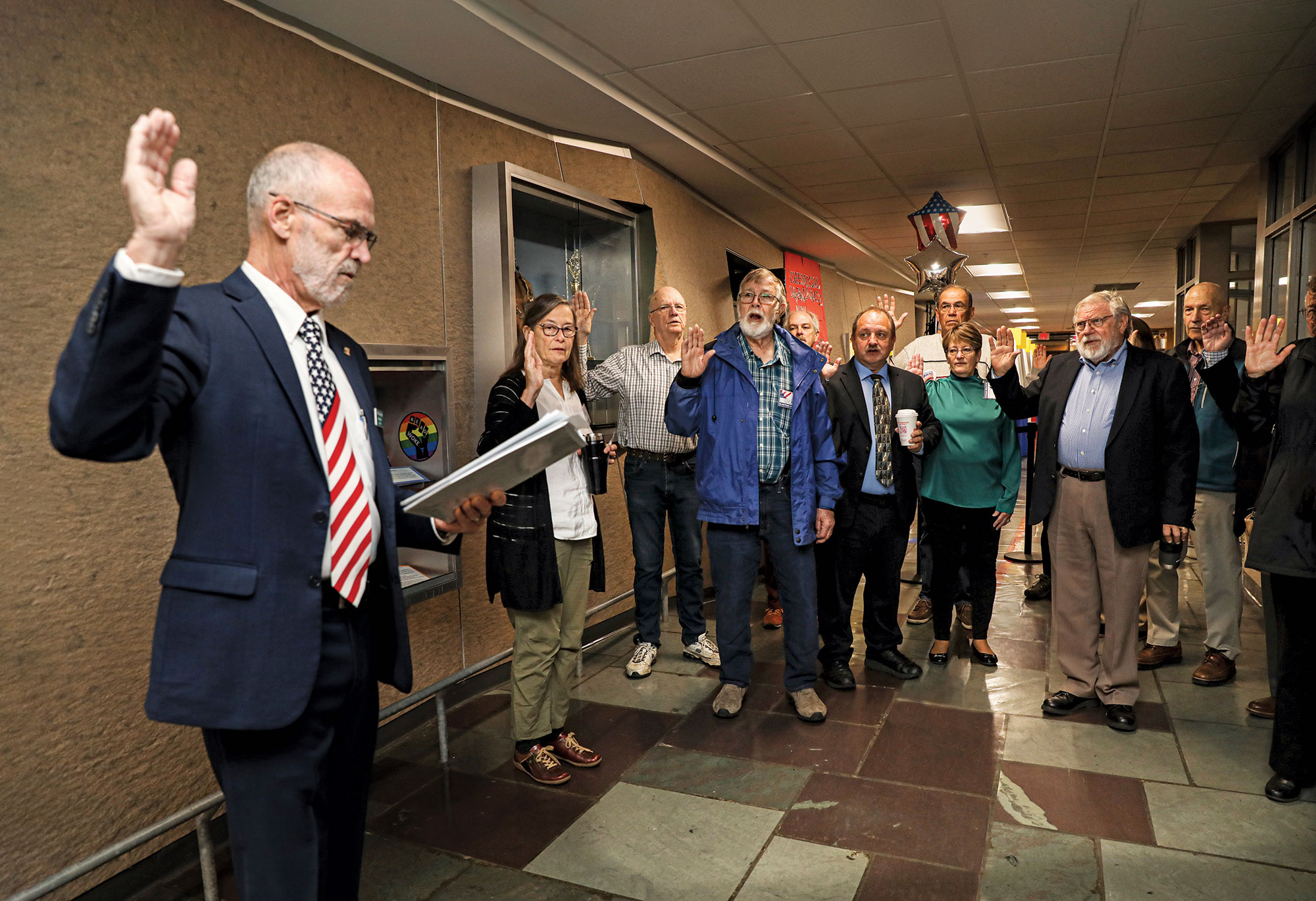






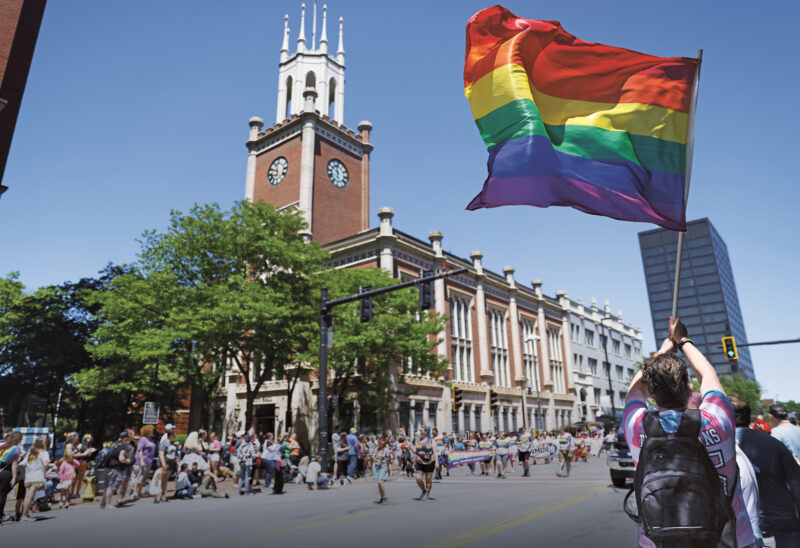
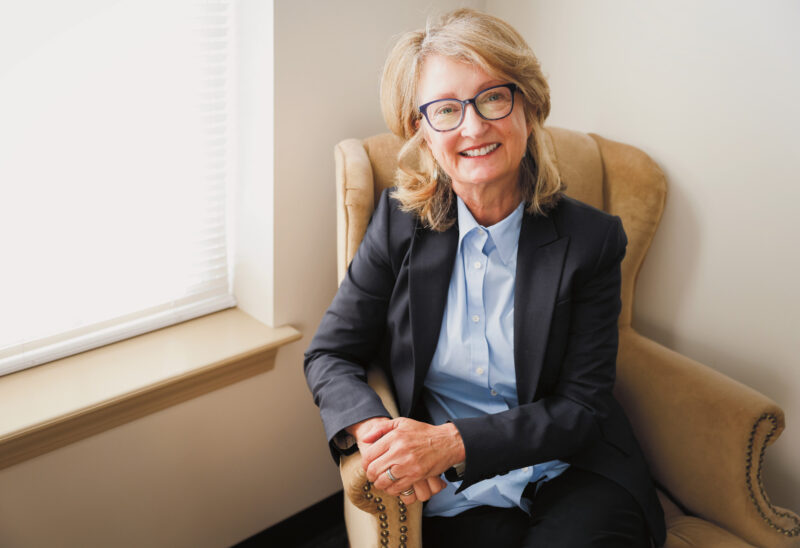

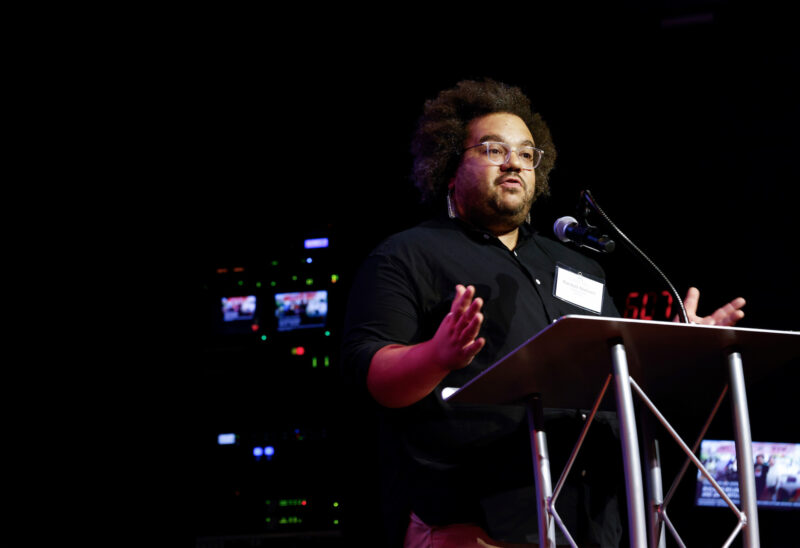
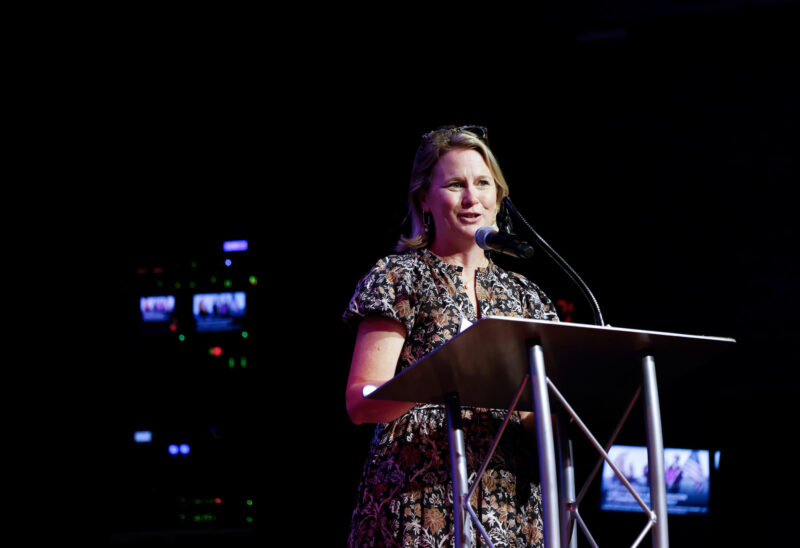

![Oluwakemi Olokunboyo of Dover received a McNabb scholarship to study nursing at Great Bay Community College [Photo by Cheryl Senter]](https://www.nhcf.org/wp-content/uploads/2024/05/Scholarship-Hero-800x548.jpg)

![Rev. Heidi Carrington Heath joined Seacoast Outright. [Photo by Cheryl Senter]](https://www.nhcf.org/wp-content/uploads/2024/05/Heidi-Carrington-Thumbnail-800x548.jpg)
![Dr. Jennie Hennigar treats a patient at the Tamworth Dental Center [Photo by Cheryl Senter]](https://www.nhcf.org/wp-content/uploads/2024/05/TCCAP-Hero-800x548.jpg)
